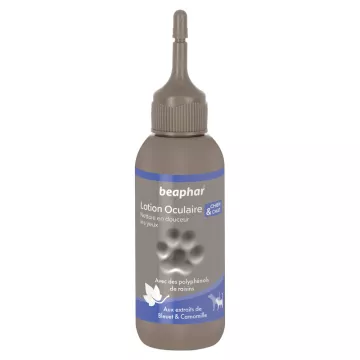
Why is it important to take care of your ears?
Taking care of your ears is crucial to maintaining good hearing and preventing infections. Ears play a vital role in balance and sound perception. Neglecting them can lead to problems such as earwax plugs, infections and hearing loss.
How do I clean my ears properly?
For effective ear cleaning, use a soft, damp cloth to clean the outside of the ear. Avoid inserting objects such as cotton buds into the ear canal, as this can push earwax deeper and cause blockages or injury. If necessary, use ear drops prescribed by a doctor to soften the wax before gently removing it.
How often should I clean my ears?
It's generally not necessary to clean your ears every day. Weekly cleaning is sufficient for most people. However, if you experience wax build-up or discomfort, consult a health care professional for advice.
What are the signs of an ear infection?
Common symptoms of an ear infection include pain, itching, temporary hearing loss, fluid discharge and sometimes fever. If you experience these symptoms, it's important to see a doctor for proper diagnosis and treatment.
How can ear infections be prevented?
To prevent ear infections, avoid prolonged exposure to water by using earplugs when swimming. Be sure to dry your ears thoroughly after showering or swimming. Avoid inserting objects into the ear canal, and consult a doctor if you experience pain or unusual symptoms.
What is earwax and what is it used for?
Earwax is a natural substance produced by glands in the ear. It serves to protect the ear canal by trapping dust, bacteria and other foreign particles. It also helps lubricate and clean the ear canal.
When should I consult a healthcare professional for ear problems?
We recommend that you consult a healthcare professional if you experience persistent pain, hearing loss, unusual discharge or symptoms of infection. An ENT (ear, nose and throat) specialist can diagnose and treat hearing problems, including earwax plugs and infections.
Do hearing aids require special care?
Yes, hearing a ids require regular maintenance to keep them working properly. Clean them daily with a soft, dry cloth, and avoid exposing them to moisture or extreme temperatures. Replace batteries regularly and have your hearing aids checked by a professional at least once a year.
What are the risks associated with poor ear care?
Poor ear care can lead to complications such as earwax plugs, infections and hearing loss. Incorrect use of ear cleaning products can also cause injury to the ear canal or eardrum.
Are there any natural remedies for ear care?
Some natural remedies can help maintain healthy ears. For example, olive or almond oil can be used to soften earwax, making it easier to remove. However, it's important to consult a healthcare professional before using natural remedies, especially if you have symptoms of infection or hearing problems.
What types of products can be used to clean the ears?
There are several products available for ear cleaning, including saline solutions, ear sprays and cerumenolytic drops. These products help to gently dissolve and remove earwax. It's important to choose products approved by health professionals and to follow the instructions for use.
Is professional ear cleaning necessary?
Professional ear cleaning may be necessary for people with excessive earwax build-up or recurrent blockages. A medical professional, such as an ENT specialist, can use specialized techniques such as irrigation or micro-aspiration to clean the ear canal safely.
What are the risks of using cotton buds for ear cleaning?
Using cotton buds for ear cleaning can be dangerous. It can push earwax deeper into the ear canal, causing injury to the eardrum and increasing the risk of infection. It's best to use safe methods recommended by health professionals.
How does aging affect ear health?
Aging can affect ear health in a number of ways, including reduced hearing (presbycusis), increased wax production and increased susceptibility to infection. Regular hearing checks and good ear hygiene can help manage these effects.
How important are regular hearing tests?
Regular hearing tests are essential to detect hearing problems early and ensure appropriate management. They help assess hearing function, identify disorders such as hearing loss or infection, and monitor the effectiveness of hearing aids or other treatments.